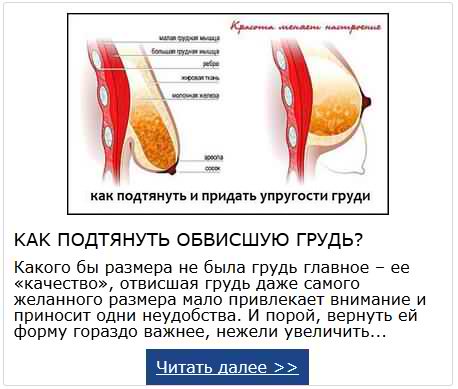Can my menstrual cycle be disrupted? Let's figure it out together!
It is commonly said that menstrual irregularities occur against the background of hormonal changes. But can the menstrual cycle be disrupted due to external factors? For example, does climate change or stress affect this? It would be good to know what experts say about this. Such information will help you take the necessary measures to restore normal functioning of the reproductive system.
Cycle norm
All reproductive organs of a woman take part in the menstrual cycle. The dominant hormones in this process are the hormones produced by the brain and ovaries. A monthly cycle is formed at the beginning of puberty and ends with menopause, ranging from 11 to 55 years. During this period, a woman is able to conceive and give birth to a child.
The beginning of the cycle is considered the first day of menstruation and it ends on the last day before the next menstruation. Ideally, a normal menstrual cycle should be 28 days. Not all women have the same number. A difference of a week is not considered a deviation. The norm is from 21 to 35 days. The main thing is that the established intervals are regular.
Medical professionals distinguish two phases of the monthly cycle:

- The first phase begins on the first day of menstruation and ends before its completion. The body prepares to receive the future egg. This period lasts 3-6 days.
- The second phase is characterized by active growth of follicles and maturation of the egg. An interval of two weeks is considered the norm for this natural process.
Since each woman’s body is individual, the duration of bleeding varies. Mostly from 3 to 7 days. If changes in the duration of menstruation begin to recur, this is abnormal and you should consult a doctor.
Can my period cycle go wrong after losing my virginity?
The first sexual intercourse is accompanied by rupture of the hymen and pain. This is its only difference from subsequent acts. After the first sexual intercourse, the next menstruation may not occur. There are three reasons: 
- During sexual intercourse, barrier or contraceptive methods of protection were not used and pregnancy occurred.
- If a girl takes an emergency pregnancy pill.
- Strong emotional stress and impression. Moreover, regardless of whether these emotions are positive or negative, they can contribute to a delay in menstruation.
Lost cycle due to cold
Biological and chemical reactions in a woman’s body contribute to the timely renewal of the endometrium. The most common cold can interfere with such necessary processes. And for some women, menstrual irregularities are closely related to viruses.
The consequence of colds is most often a delay in menstruation. Disturbances in the functioning of the hypothalamus and pituitary gland lead to a deficiency of the hormone that initiates ovulation.
Both colds and inflammation of the genitourinary organs are usually preceded by hypothermia. The immune system is weakened and suitable conditions for infection are created. Therefore, sometimes two inflammatory processes occur in parallel. The disrupted cycle is accompanied by a change in the color of urine and frequent urination, as well as characteristic signs of discharge. In this case, the delay does not exceed 10 days. If the menstrual cycle is disrupted in the subsequent period, then this is no longer associated with ARVI.
Climate change
The acclimatization period is when, after territorial  movement, the body adapts to new conditions. Humidity, temperature, atmospheric pressure and an unusual time zone - all this affects the operation of various systems. And since the reproductive system is the most vulnerable in the female body, menstrual irregularities are the first phenomenon that should be expected in these conditions. There is no particular reason to worry, since the process of adaptation when moving is considered natural.
movement, the body adapts to new conditions. Humidity, temperature, atmospheric pressure and an unusual time zone - all this affects the operation of various systems. And since the reproductive system is the most vulnerable in the female body, menstrual irregularities are the first phenomenon that should be expected in these conditions. There is no particular reason to worry, since the process of adaptation when moving is considered natural.
New climatic conditions also affect other features of the course of menstruation. Discharge may become scanty. Usually, if the delay does not overlap with other diseases, the menstrual cycle is restored after 2 weeks.
Stress and cycle disorders
Psychological stress can cause hormonal changes. This most often occurs in women after 40 years of age. This is explained by the fact that the hormonal background of the fairer sex is at the start of age-related changes. This period is also often accompanied by troubles in life.
For young girls, stress occurs due to the intense pace of life. As a rule, young people tend to hope for their excellent health. But the reserve of physical and emotional strength is exhausted and the result is a psychological disorder, which results in menstrual irregularities.
Restoring the menstrual cycle after stress is difficult. This period usually lasts more than a month.
Although stressful situations are inevitable, it is possible to reduce emotional stress to a minimum. You need to learn to protect yourself from unnecessary worries.
Menstrual irregularities due to physical activity and sports
Whether exercise impairment can occur depends on the nature of the exercise itself. If we talk about professional sports, they can cause not only a slight delay in menstruation, but also big problems in this regard. Under such loads, low-fat and low-carbohydrate diets, as well as pharmacology, are often recommended. Before engaging in strenuous sports, you need to know your health status and then correctly follow the trainer’s recommendations.
During amateur training, there are also disturbances in the functioning of the reproductive organs. But this does not happen because of the exercise itself, but because of stress, not only on the muscles, but on the entire body. If a girl is not prepared and this is her first load, then the sensitive reproductive system immediately reacts to this. If under such circumstances the menstrual cycle is disrupted, it will be restored in two months.
After childbirth
It is worth noting that during pregnancy and childbirth, dramatic changes occurred in the female body. Naturally, it will take time to recover. After childbirth, the mother's endocrine system increases the production of a milk hormone called prolactin. The hormone suppresses the maturation of eggs. When a woman stops breastfeeding, then the first menstruation should be expected. In each woman’s body, everything proceeds differently, but restoration of the menstrual cycle is closely related to feeding the child.
A woman needs to be careful not to confuse the discharge of lochia with initial menstruation. Don't expect your period  will be adjusted immediately. While the hormonal background is being restructured, it will be possible to observe a change in the duration of menstruation, an inconsistent cycle, and delays in the next discharge. And this is quite natural.
will be adjusted immediately. While the hormonal background is being restructured, it will be possible to observe a change in the duration of menstruation, an inconsistent cycle, and delays in the next discharge. And this is quite natural.
After taking antibiotics
The effect of antibiotics on the menstrual cycle as a whole depends on the characteristics of the organism. For some women, such medications do not cause any problems.
Experts note that if after a course of treatment with antibacterial drugs the menstrual cycle is disrupted, this is not always due to their use. The disorder can be caused by the disease for which antibiotics were prescribed, as well as the stress accompanying this situation.
It is important to remember that taking antibacterial drugs reduces the effect of contraceptives. Therefore, the delay may be due to pregnancy.
To exclude possible violations while taking antibiotics, it is recommended to consume a complex of minerals and vitamins.
When taking and stopping birth control pills
The female body must get used to the action of new hormones. The adaptation period lasts 3 months. During this time, various changes may occur at the hormonal level, and they are considered normal.
If scanty discharge appears ahead of time, you need to change the contraceptive to a stronger drug. The process of suppressing ovulation turned out to be insufficient. 
If, after stopping the drug, menstruation disappeared for a long time, then the reproductive organs were too suppressed by the drug used.
Often after a woman stops using contraception,
menstruation does not come until six months. This is fine.
Other factors
Medical professionals note other causes of menstrual irregularities. These include: bad habits, unhealthy diet, taking medications.
For example, if a woman is addicted to too salty and spicy foods. Poor nutrition leads to poor digestion, and this in turn can cause a delay in menstruation.
If there is a change in the duration of menstruation or other disturbances, it is necessary to exclude diseases that contribute to such manifestations.
- Anomalies of the female organs and adrenal glands.
- Inflammatory and infectious processes of the genitourinary system.
- Chronic female diseases.
Treatment

The reason for serious treatment is bleeding. Curettage is prescribed. This procedure is carried out not only for medicinal purposes. Curettage helps establish the correct diagnosis. After it, proper treatment is prescribed. Hormonal therapy may consist of:
- Combined contraceptives;
- Pergonal, which stimulates follicle growth;
- Clomiphene, which promotes the ovulation process;
- Progesterone analogues, to normalize the functioning of the reproductive organs in the second phase of the cycle;
- Anemic therapy and replenishment of circulating blood volume.
WHAT TO DO IF YOU HAVE BEEN DETECTED A FIBROID, CYST, INFERTILITY OR OTHER DISEASE?
- You are experiencing sudden abdominal pain.
- And I’m already quite tired of long, chaotic and painful periods.
- You do not have enough endometrium to become pregnant.
- Discharge that is brown, green or yellow.
- And for some reason the recommended medications are not effective in your case.
- In addition, constant weakness and ailments have already become a firm part of your life.
An effective remedy for the treatment of endometriosis, cysts, fibroids, unstable menstrual cycle and other gynecological diseases exists. Follow the link and find out what the chief gynecologist of Russia recommends to you
Read more:
Add a comment Cancel reply
All rights reserved © 2016 The information posted on the site is for reference only and cannot be considered medical advice or replace it. For more detailed information, we recommend that you contact a specialist.






